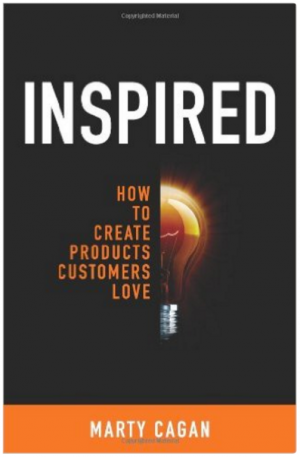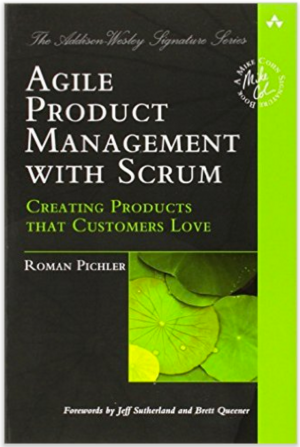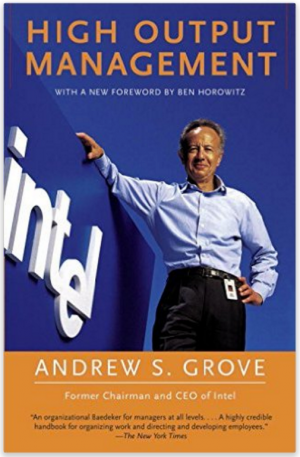
Being a great product manager is hard.
Whether you’re working on an early product at a young startup or you’re in charge of a well-established product at a more mature company, it’s your job to satisfy the needs of both your business and your user.
To help you navigate these challenges (and take your skills to the next level), we’ve rounded up 11 of the best books for product managers. Enjoy!
1. The Product Manager's Survival Guide: Everything You Need to Know to Succeed as a Product Manager
The Survival Guide is great for anyone who’s just starting out as a PM. Steven Haines, one of today’s leading Product Management thought-leaders, gives a detailed high-level overview of what product management is, the critical elements of the role, and why they’re so important to shipping successful products.
He breaks these objectives down into just enough detail for you to get started, and provides worksheet-like templates as a guide. Use this book in conjunction the Products Managers Desk Reference, also by Steven Haines, which I’ll discuss next.
2. The Product Manager’s Desk Reference
Steven Haines’ Desk Reference is a comprehensive reference guide that covers the product management process and the essential skills and responsibilities of the PM, including market analysis, understanding customer needs, segmentation, owning the product roadmap, and more.
This book is about 700 pages long, but you don’t have to read it from cover to cover to get value from it. It’s meant to be used as a reference, so specific topics can be accessed easily without reading the entire book.
3. Inspired: How to Create Products Customers Love
Inspired is a great introduction to software product management written by Silicon Valley Product Group partner, Marty Cagan.
People who are new to product management will find it especially useful because it covers the primary responsibilities and essential qualities of a good product manager, and includes helpful tips on juggling the conflicting needs of executives, engineers, designers, and marketers.
It’s also a good refresher for people who’ve been in the field for a few years already, bringing you back to the fundamentals.
4. Agile Product Management with Scrum: Creating Products that Customers Love
This book is a concise, digestible, 130-page guide with practical advice for the complicated role of a product manager in an agile environment.
The author, Roman Pichler, assumes that the reader is an experienced traditional product manager learning Scrum, and focuses on the unique challenges that they encounter. He covers relevant topics like, how to take advantage of emergent requirements, creating a minimal marketable product, leveraging early customer feedback, and working closely with the development team.
He also discusses the most common pitfalls that product owners can fall into and how to avoid them.
5. Hooked: How to Build Habit-Forming Products
Hooked by Nir Eyal was one of the best books I read in 2015 and I highly recommend it.
It breaks down the fundamental principles of behavioral psychology and explains how to apply them to software products in order to create what he calls “unprompted user engagement.”
An Amazon reviewer put it well: “If you're trying to build the next big app, you need user engagement. This book lays down a model building engagement by having users constantly return to your app. In the beginning this is prompted, but eventually it'll become instinct. This is how viral loops are formed.”
6. The Four Steps to the Epiphany: Successful Strategies for Products that Win
In The Four Steps to the Epiphany, Steve Blank explains his customer development model in thorough detail. He characterizes this model as “a paradox because it is followed by successful startups, yet has been articulated by no one. Its basic propositions as the antithesis of common wisdom yet they are followed by those who achieve success. It is the path that is hidden in plain sight."
He also suggests that those who survive the first few years "do not follow the traditional product-centric launch model espoused by product managers of the venture capital community."
Full disclosure: this book was originally designed as a companion to Steve’s class at UC Berkeley’s Haas School of Business. And he would be the first to suggest that it’s “a work in progress.” This book can be a challenging read, but the central concept will give you a step-by-step process to discover and cultivate your core users.
7. The Design of Everyday Things
The Design of Everyday Things is a must-read for PMs (and just about everyone else) looking for a deeper understanding of human-computer interaction. Don Norman, cognitive scientist and co-founder of Nielsen Norman Group, argues that design is about more than just making things that look pretty.
He illustrates why good design matters and provides a broad range of mental models for understanding how a user might think. It makes you consider the challenges of design and serves as a comprehensive look into the level of intention that goes into well-designed products.
8. Startup Growth Engines: Case Studies of How Today's Most Successful Startups Unlock Extraordinary Growth
Today’s top tech startups build marketing and growth into the core product itself, rather than trying to bolt it on as an afterthought.
In Startup Growth Engines, Sean Ellis and Morgan Brown present case studies that look at how companies like Uber, Square, Snapchat, Evernote, Hubspot, Github, and Linkedin have grown to millions of users and billions of dollars in value—all without using the traditional marketing playbook.
It's written by Sean Ellis (founder and CEO of Qualaroo and GrowthHackers.com) and Morgan Brown (COO of Inman News and ex-Head of Growth at Qualaroo).
9. The Mythical Man Month: Essays on Software Engineering
This classic book on software development by Frederick Brooks is as valuable today as it was when it was written in 1975. If you want to be able to manage products on large teams, this books is mandatory.
Some of the technical issues the books presents are a bit dated, but an Amazon reviewer put it well: “You will certainly have to abstract the methodology to the current technology we have today, but managerial lessons are still relevant, mostly because people haven't changed that much.”
10. High Management Output
High Management Output chronicles the methods and tactics Intel’s CEO, Andrew Grove, used to take a small memory chip manufacturer and turn it into one of the largest producers of computer chips of our time.
The central thesis of the book is that managers are responsible for increasing the output of the work of their teams. And therefore, they should focus on accomplishments and outputs, not activities.
While the previous books on this list have been about managing products, this book is about managing people.
11. Crucial Conversations: Tools for Talking When Stakes Are High
Crucial Conversations is about how to effectively communicate in situations when the stakes are high and saying the right thing is important.
(For example, when you’re critiquing a colleague’s work, talking to a team member who isn’t keeping commitments, or approaching a boss who’s breaking his own policies.)
This book will help you understand the interpersonal dynamics involved in these types of conversations, and also helps you develop the skills and abilities you need to handle these situations effectively.
Further Reading:
So many great books have been written that it's hard to pare things down to such a short list.
This list leaves out amazing contributions to the tech industry such as Crossing the Chasm, Innovator's Dilemma, The Hard Thing About Hard Things, The Lean Startup, Zero to One, and Founders at Work. And I'm sure I've missed some other great ones, too.
What do you think? What are the best books for product managers? Share your favorites with us on Twitter, Facebook or Linkedin.
Insights that drive innovation
Get our best human insight resources delivered right to your inbox every month. As a bonus, we'll send you our latest industry report: When business is human, insights drive innovation.

















